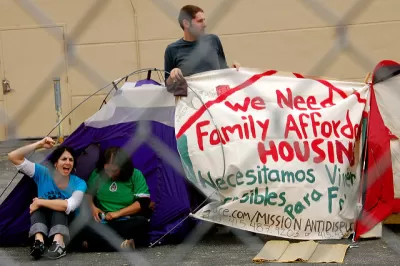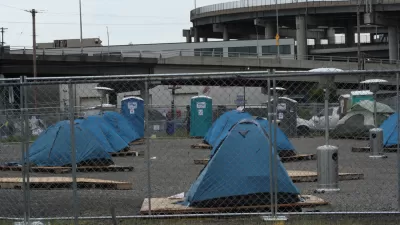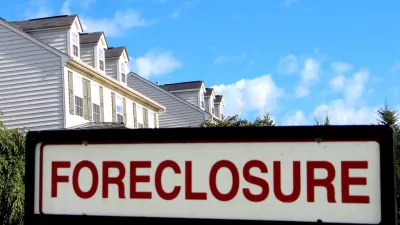The pre-existing condition of the California housing market will make it very difficult to meet the demands of the state's residents as unemployment spikes in the state.

Liam Dillon, Ben Poston, and Julia Barajas and report on the state of the affordable housing development industry in California, where a recent multi-family development in Solano Beach recently became the most expensive affordable housing project in the state, and likely the country.
When developer Ginger Hitzke first proposed an affordable housing complex on a parking lot in Solana Beach, she envisioned building 18 new homes for low-income families and adults at a cost of $414,000 per apartment.
More than a decade later, her project has shrunk in size by nearly half and become more than twice as expensive.
According to the article, the price of the project serves of evidence of the state's broken housing development market.
It’s not just the notoriously high price of land or the rising cost of construction materials that explain why it’s so expensive to build affordable housing in California, The Times found. Numerous factors under state and local government control also are to blame, including opposition from neighbors and rules that compel developers to meet labor and environmental standards that often exceed what’s required for luxury condominiums.
While affordable housing was a crisis before the coronavirus started spreading throughout the state, sudden unemployment (2.7 million in California have filed for unemployment, according to California Governor Gavin Newsom on April 15), and other economic stresses are likely to make the need for affordable housing all the more pressing.
An earlier article by Dillon cited experts opinion on the likelihood for economic effects of the pandemic to increase demand for affordable housing. Although the focus of that prediction would seem inconsistent from a prediction by experts at the Joint Center for Housing Studies of Harvard University that the pandemic would reduce demand for rental housing, both predictions share the same express concern about the potential for the coronavirus-related housing crisis to worsen housing affordability for low-income renters.
FULL STORY: Affordable housing can cost $1 million per apartment in California. Coronavirus could make it worse

Planetizen Federal Action Tracker
A weekly monitor of how Trump’s orders and actions are impacting planners and planning in America.

Restaurant Patios Were a Pandemic Win — Why Were They so Hard to Keep?
Social distancing requirements and changes in travel patterns prompted cities to pilot new uses for street and sidewalk space. Then it got complicated.

Maui's Vacation Rental Debate Turns Ugly
Verbal attacks, misinformation campaigns and fistfights plague a high-stakes debate to convert thousands of vacation rentals into long-term housing.

Boulder Eliminates Parking Minimums Citywide
Officials estimate the cost of building a single underground parking space at up to $100,000.

Orange County, Florida Adopts Largest US “Sprawl Repair” Code
The ‘Orange Code’ seeks to rectify decades of sprawl-inducing, car-oriented development.

Maui's Vacation Rental Debate Turns Ugly
Verbal attacks, misinformation campaigns and fistfights plague a high-stakes debate to convert thousands of vacation rentals into long-term housing.
Urban Design for Planners 1: Software Tools
This six-course series explores essential urban design concepts using open source software and equips planners with the tools they need to participate fully in the urban design process.
Planning for Universal Design
Learn the tools for implementing Universal Design in planning regulations.
Heyer Gruel & Associates PA
JM Goldson LLC
Custer County Colorado
City of Camden Redevelopment Agency
City of Astoria
Transportation Research & Education Center (TREC) at Portland State University
Camden Redevelopment Agency
City of Claremont
Municipality of Princeton (NJ)





























